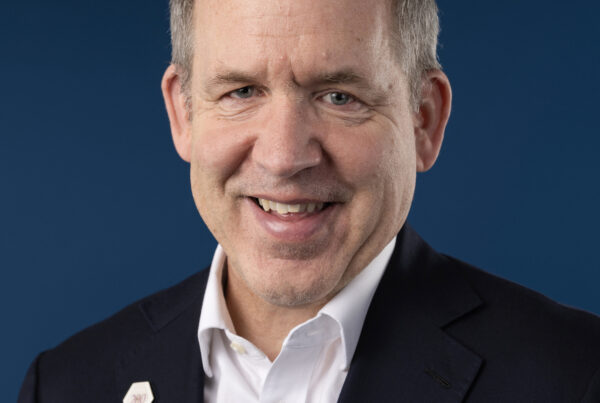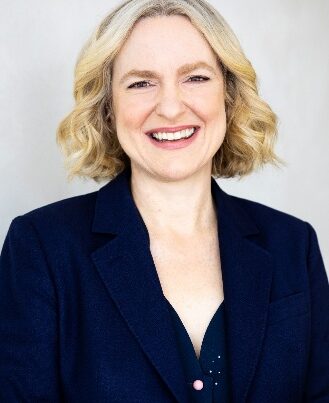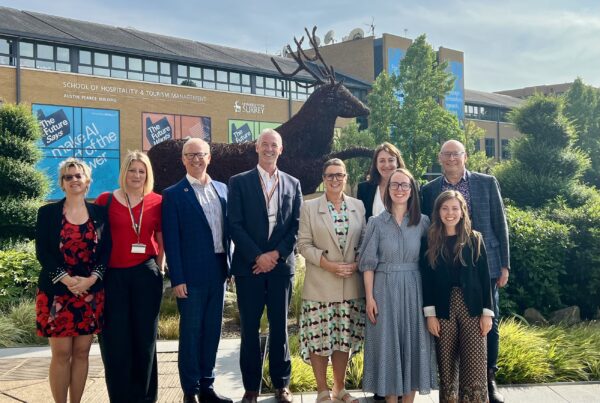From ‘magic’ to belonging: transforming higher education
I grew up thinking of universities as magical places.
My Mum was an academic and a hugely passionate one. Consequently, I spent most of my holidays, many evenings, and part of countless weekends perched beside her at her desk at the QUT Gardens Point campus.
Like the child of a shopkeeper or restauranteur who spends holidays, weekends and evenings either helping in the family business or doing homework at the corner table, our ‘family business’ was universities.
My parents were rural kids raised in Western Queensland and the first in their families to attend university. It was a slog for them to get there and a slog for them to complete their degrees. But they both did. They met each other during their years at UQ and supported each other to complete their undergraduate and postgraduate qualifications, going on to build solid careers.
They’ve been divorced for 20 years, so it’s not an idyllic romantic tale. But it is a love story about university. University was the making of both of their lives. It let them dream bigger and opened doors. For my dad, it was his ticket off the land. For my mum, it was her everything.
My Mum’s profound appreciation for the transformative impact that university education had on her life led her into academia. This also meant that in her work as an academic, she was deeply committed to helping others have the kind of transformational university experience she’d had.
During my early years and into young adulthood, I would’ve met close to 100 students and colleagues my Mum championed and for whom university unequivocally changed their lives. Higher education pulled them out of difficult circumstances and gave them social mobility, cultural capital, diverse connections, and opportunities that hadn’t been open to them before they’d undertaken higher education.
This is why I thought universities were so magical. I saw how life-changing and truly transformative they could be.
I understood that accessing university was more challenging for some people. Still, I believed, for a long time, well into my university career, that once the barriers to access were removed, then the transformation could begin. I didn’t understand that for many people, opening the door to university is just the first barrier to overcome, and there are hurdles every step of the way from there.
It won’t surprise you to learn that, to date, most of my career has been in universities. I worked for over ten years in what are called ‘professional staff roles’ in universities, in positions focused on student support, international development, engagement, and events. I also veered into the academic space for several years as a casual academic, working as a research assistant and tutor.
Looking back now, I am deeply embarrassed at my naiveté, my blinkered, privileged perspective as someone who exists in the dominant culture, for whom university study was just a natural next step, who could live at home and work a casual job in a shop, and study whatever I was interested in. For many of the early years of my career, while working directly with students, I still knew very little about the complex, intersectional barriers people face in seeking the educational opportunities that were so readily available to me.
This doesn’t mean that studying at university was easy for me. It was hard but in the right way.
University is meant to be challenging. The content should stretch and provoke, expanding knowledge, skills, and abilities. University often involves long hours, an annoying commute, and juggling study and work. But this is ‘normal’ hardness—the difficulty and complexity everyone faces when pursuing higher education.
This is not the inequity and systemic exclusion that people who are defined as belonging to equity and ‘equity-like’ groups face, with many facing intersectional inequity and systemic exclusion.
Universities are aware of this inequity and exclusion. Most have substantial equity, diversity, and inclusion policies. Many develop research on migration, social cohesion, economic participation, diversity, and inclusion. And most would argue that they exist for the public good.
However, students, staff, and communities of practice from equity and ‘equity-like’ groups are not experiencing this policy, they are not the beneficiaries of this research, and they don’t seem to be included in the public experiencing the ‘good’.
Paraphrasing Sally Patfield’s excellent article in The Conversation on 24 February – access is vital, the growing parity of numbers from equity groups is ambitious, and developing policies and programs to connect with equity groups is essential. This might even open the door to a few more people from underrepresented groups. Still, it will have little to no impact if the sector is not listening and responding to the needs of these cohorts by taking appropriate action to remove the barriers, address the inequity, and change the system.
I will discuss this at Melbourne’s HEDx ‘Changing Higher Education for Good’ conference next week. Alongside my colleague Mohamed Omer, a student leader from the University of Melbourne, I am appearing on a panel called ‘Accelerating in our pursuit of social justice and equity’ with several excellent speakers, thinkers, and innovators who advocate for access and equity across different spaces.
Mohamed and I will be speaking to the issues of systemic racism and exclusion that culturally diverse people (including international students) experience in accessing university education whilst studying and working in universities and in seeking post-study support and opportunities.
As universities and the broader higher education sector explore the recommendations of the Australian Universities Accord and the parts they regard as most critical to be actioned, Welcoming Universities recommends that welcoming and belonging be placed at the centre of everything the sector does.
Welcoming opens the door, invites people in, and helps them overcome hurdles. Belonging is the next step. Belonging ensures that everyone “feels valued, connected and able to be their authentic self”[1].
Through extensive consultation with people and communities facing barriers to accessing, completing, and working in university education and the inclusion of their stories and lived experiences, the Welcoming Universities network and standard offer actionable ideas, approaches, and measures of success that put welcoming and belonging at the centre of universities.
My hope is that conversations like the one happening at HEDx this week, the work of Welcoming Universities, the Universities Enable initiative, and others with vision in the equity space will restore the magical possibility of universities I saw as a young person. I truly believe that university and higher education can be transformative if people from all backgrounds and communities are welcomed and allowed to belong.
Cate Gilpin, Coordinator of Welcoming Universities
Mohamed Omer, former UMSU People of Colour Department Officer, and University of Melbourne alumnus
[1] Belonging, why it’s the next step in equity, diversity and inclusion.









